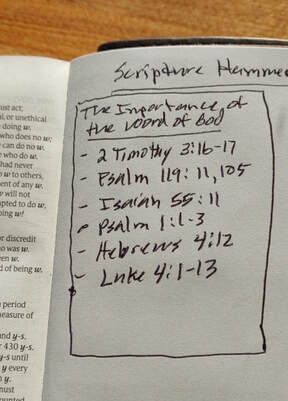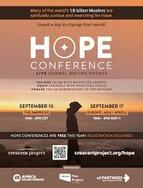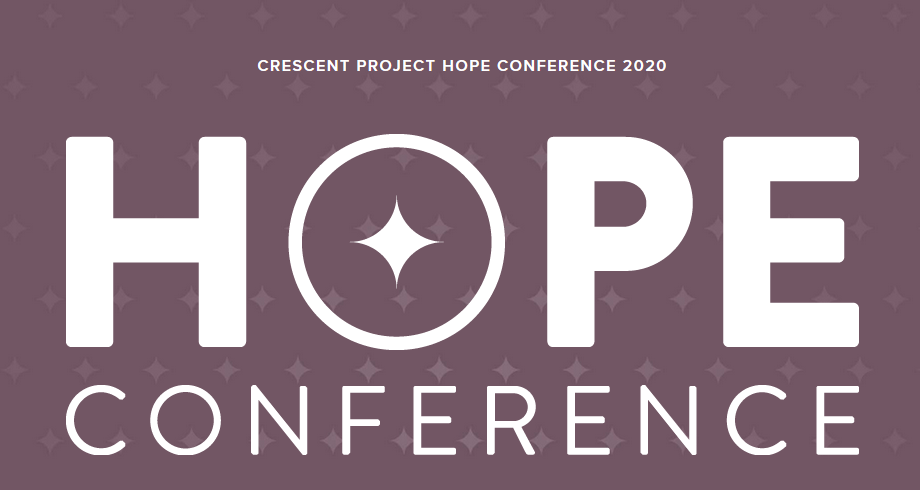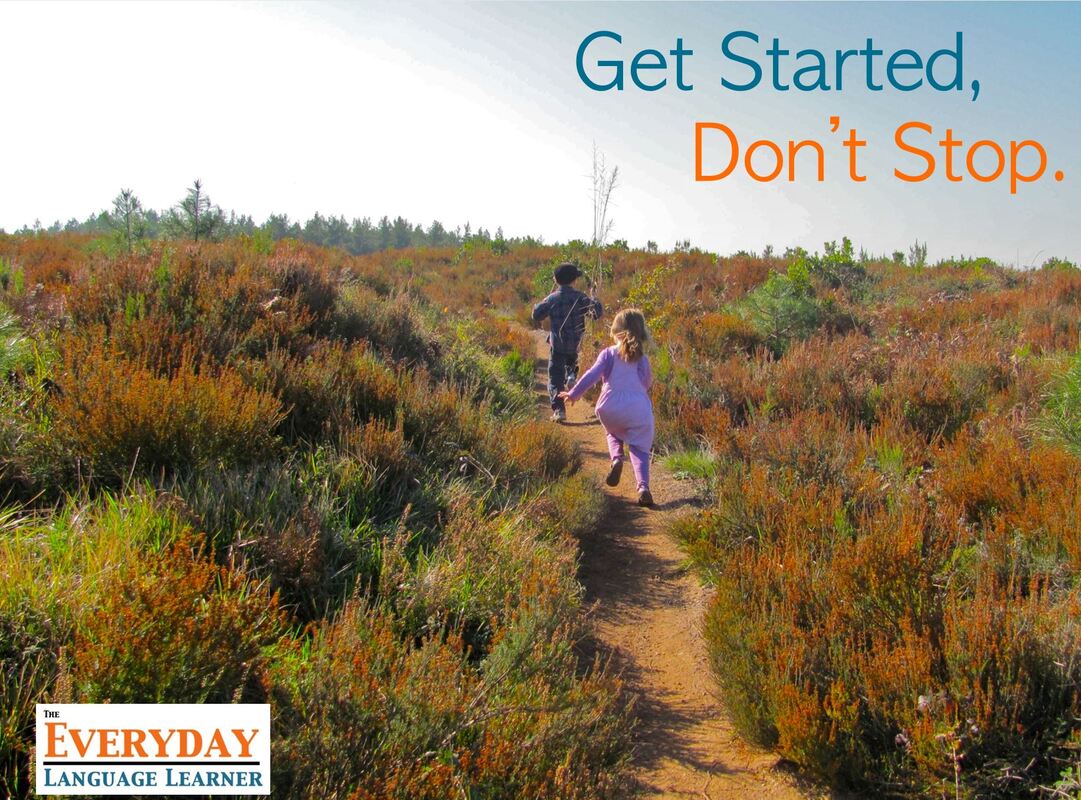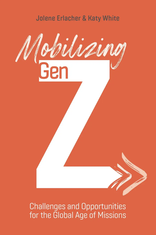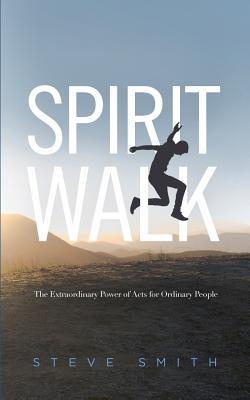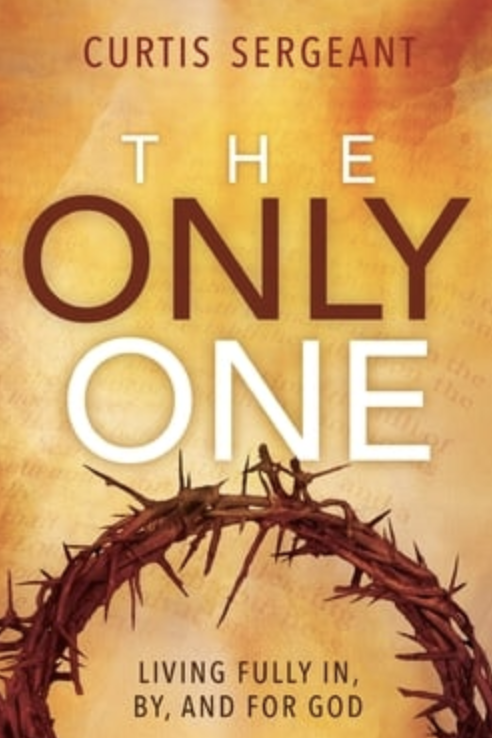|
One of the great challenges we face as Christians in an increasingly globalized world is understanding how to share the love of Jesus and the good news of the gospel cross culturally. As if language barriers were not enough, deep cultural differences in worldview, in customs, in values and history all have the potential to create barriers to good communication and open up wide avenues for miscommunication. Debbie DiGennaro, in her book Acclicmated to Africa: Cultural Competence for Westerners, shares a humorous story that highlights this challenge: There was once a certain British man who went with his company to Nigeria. He immediately noticed about Nigerians that the men did not step back to allow ladies to enter a room ahead of them. This bothered him very much. As a proper gentleman, whenever he approached a doorway at the same time as a Nigerian woman, he courteously motioned for her to pass through the door ahead of him. It is not hard to imagine why, in a country where for thousands of years families most likely lived in grass huts with snakes being an ever present issue, the custom of how to enter buildings developed differently than it did in England. It's also not hard to imagine the looks of confusion and even disdain this British gentleman must have received from Nigerian women as he emphatically ushered them into their potential death by snake bite. This cultural nugget of difference is multiplied thousands of times with every new cultural context we enter. Some issues are minor while others can lead to tremendous damage to relationships and potential opportunities to share the gospel. As disciples of Jesus it is important to first realize that those differences, both the deep and the shallow, will always be present when we move into cross cultural settings. We then must do the hard work of trying to understand these differences to see where God is already at work and how we can join him there. This is hard work. Just when we think we’ve figured something out we’ll run into nuances that will confound us once again. If cross cultural ministry is something that you are or will be a part of then it is vitally important to do some homework. Cross cultural ministry can happen in varying degrees wherever you are. Crossing the ocean to engage with people from a different religious background that speak another language is of course more complex than a midwesterner traveling to New York City, but both are cross cultural ministry. Regardless of the complexity and depth of difference between cultures, we can train ourselves to do better at recognizing both the differences and the opportunities they present. Part of that training could be reading books like Foreign to Familiar by Sarah Lanier or Global Humility by Andy McCullough. Context specific books like the one shared above can be a next step. There are also great trainings for missionaries preparing to move overseas at places like Mission Training International and the Center for Intercultural Training. Here at Everywhere to Everywhere though we are working to equip and empower the local church for local cross cultural ministry and so have created a fun and interactive one day training we call the Cross-Cultural Scavenger Hunt Training Module. This training can be done in any local city in about 5-6 hours. It includes discovery Bible study, interactive lecture and activities, lunch at an ethnic restaurant and a cross-cultural scavenger hunt that takes participants to three to four different immigrant-owned grocery stores. All of this is followed by a debrief while eating snacks purchased at the stores. This has been an amazing way to help local congregations move past fear and begin to get to know their new American neighbors - many of whom come from Muslim, Hindu, Buddhist or Animistic backgrounds. Many of whom have never had an opportunity to hear the gospel. The goal of the training is to bring awareness of the different cultures around us and then give participants a beginning framework for understanding the differences so that they can more effectively love well and share the gospel more confidently. If you would like to explore hosting your own Cross Cultural Scavenger Hunt Training Module you can find a fuller description of the event and all the necessary resources by clicking the button below. Did you find this post helpful? Share it with a friend.
0 Comments
I've written often about the importance of immersing ourselves in the word of God and have shared tools for helping us do that well. Today I want to take one step back and share a short scripture hammer tool to help young believers discover the absolute importance the scriptures. The tools are great but if your disciple doesn't understand why they need to apply the tool, well, it may not do much good.
When I sit down to read these with my disciple - or a group of disciples - I read each passage two to three times aloud and then have the individual or the group summarize the basic message in their own words. I save the last passage - Jesus' confrontation with the devil in the wilderness - for last as a way to sort of watch Jesus apply the scriptures in His own life.
The goal is to help our disciples discover the joy, the benefit and the power of the scriptures in our lives. The sooner we can help them begin prayerfully engaging with the scriptures on a daily basis, the quicker they will grow toward maturity. If we really believe that the Holy Spirit will guide us - and them - into all truth (John 16:13) then we have to help them get into the scriptures trusting that the Holy Spirit will indeed disciple them into all truth. Do you have a young believer in your life who is struggling to get into the word daily? Find some time to sit down and work through these scriptures together. Do you have another scripture or story that you would include in the list? Share it in the comments below. Scripture List:
If you do take a disciple through this discovery study, let me know how it went in the comments as well. What is the person of peace? It's a term that is increasingly used both in the church and in the mission field. Practitioners of disciple making movements (DMM) often talk of searching for the person of peace and yet different groups use the term in different ways. All are correct but for those just beginning to explore the idea of the Person of Peace, a clarification might be in order. Some define the Person of Peace (PoP) as anyone who welcomes and opens up their relational network to to the messenger - be that a missionary or a local lay believer crossing the street in their neighborhood. In this use, the PoP doesn't necessarily need to be someone who initially accepts the message, but rather gives permission to the messenger to share with the group. They are often a gatekeeper of sorts - an elder of the village or the patriarch of a family. God is using them to open the door for the message to go forward in their context. This is also sometimes referred to as a House of Peace. A second way the idea of the Person of Peace is used is to simply indicate someone whom God has prepared to receive the gospel. They are a seeker, a God prepared person. Perhaps they've had a dream or a vision or have had a crisis in life that caused them to do some deep soul searching. Their heart is prepared to respond to the gospel. They are ready to receive the messenger and the message. A final way I often hear to idea of the Person of Peace discussed is that they not only are prepared to receive the gospel, but they are also ready and able to reproduce and share the good news with other. They receive the message and the messenger but they also readily receive the mission. When the woman at the well believes Jesus in John 4 she immediately takes that message back to he village where she tells everyone the good news and brings them to Jesus. Many would also refer to this person as a "Fourth Soil Person" who reproduces 30, 60 or 100 times from the Parable of the Sower. All of these definitions work but as you are reading the literature or listening to interviews with practitioners, it is helpful to understand how they are using the term. It was a bit confusing for me the first time I ran into the different ways it was being used. Perhaps there are other ways to think about the Person of Peace. If so, let me know your thoughts in the comments. Until then, I'd encourage you to download this discovery tool to help you learn about the Person of Peace from Jesus' ministry in the gospels. Trainer's notes are included on page three. As we immerse ourselves in the story of the scriptures, we allow the Holy Spirit to use them to shape our view of the world, of ministry and of ourselves. Scripture hammer trainings allow a trainer to step out of the way and allow the Bible to do the heavy lifting of the training. They require little charism on the part of the trainer, are hard to argue with and place a tool in the hands of those we are training that is immediately reproducible.
The basic idea is to create a list of scriptures that all point toward the basic Biblical principle or lesson you are wanting your trainees to grasp. A scripture hammer study is best done in groups of 2-5 and then debriefed as a group. You can create your own for any topic you'd like to train on. I've created a one page handout with six scripture hammer studies that I've learned from others and that I've been using to train. The focus of these particular studies are:
[CLICK HERE TO DOWNLOAD THE SIX STUDIES] I've written previously about a few of these topic and you can check those out at the links below: While coronavirus has caused a lot of disruption in our world it has also created some great new opportunities. Crescent Project's annual national conference has needed to adjust and has moved online. Introducing the Hope Conference. More accessible than ever and FREE, Hope Conference will happen Thursday September 10th from 9 am - 2 pm central time. The event will feature top notch speakers, opportunities to interact with mission mobilizers, missionaries, former Muslims and Crescent Project staff and all of this will happen online. This will be a great opportunity to be encouraged and equipped to join the work that God is doing in the Muslim world. Watch alone or gather some friends!
Sahara Challenge is an important training opportunity for anyone wanting to go deeper in their understanding of how to better minister to Muslims. It is Crescent Project's top tier training event and because of Covid-19 will this year be offered online for the first time ever, making it more accessible than ever before. Included in the Online Event:
Give me six hours to chop down a tree and I will spend the first four sharpening the ax. * Information taken from the Crescent Project website. A sermon given at Hillsboro Mennonite Brethren Church on the strategies and disciple making process of Jesus in Luke 10:1-24.
Before moving to Central Asia in 2008 I was fortunate to spend time at Mission Training International (MTI) in Colorado doing some pre-field training. This included two weeks of language training with Dwight and Barbara Gradin. We were not learning our target language but rather receiving training to be more effective and efficient language learners. That training set the stage for becoming a language coach and the writer behind The Everyday Language Learner. The goal was to help as many people as possible be successful language learners and in the process create a location independent business which would allow continued work throughout the Muslim world regardless of whether we lived there or not. When we returned to the states in 2012, my goal was to continue to grow this online business model. Traffic grew. Influence grew. But I lacked the business acumen to really make a go of things. And so in 2014, The Everyday Language Learner went away. I moved on and see now all that God was doing to prepare me through those years for the work I'm doing now to mobilize and train the church into the harvest. I want to share with you a few resources that were created during that season. The three resources below are ebooks that you can downloard for free. I hope that they will help you learn another language so that you can more effectively share the gospel. Enjoy and share them with others. Before You Move Overseas: This workbook is a blueprint for the weeks and months BEFORE you board the plane. In it you will find actions that, when implemented, will help you prepare for the language learning journey. This workbook is filled with the actions I wish someone had encouraged me to take in that year before moving. The bulk of this guide then is made up of ten actions you can take over the coming months before you move. [Read it Here] Activities and Strategies for Everyday Language Learners: This ebook is a collection of 56 articles from the Everyday Language Learner blog focusing primarily on practical, hands-on activities you can do in your personal study time, with a language helper or out in the community. This is a 243 page ebook! [Read it Here] The Everyday Language Learner's Guide to Getting Started: This is the most robust guide I wrote and in it I give all the information needed to be a self-directed, independent language learner. [You can download a zip file from the bottom right of the Resource Page] Most cross cultural work will require the learning of another language. It is essential to be able to effectively communicate the gospel. I hope that these resources will help you on the language learning journey. This week I'll be co-teaching a workshop on refugee outreach at Crescent Project's National Conference. My colleague James will begin that workshop with a short devotional from Luke chapter 7 where Jesus is asked to heal a centurion's servant. It's a story that has caused me a fare amount of conviction the past few weeks as I've meditated on it. I'll hope it does the same for you. Jesus has just finished teaching the masses when a group of elders from the Jewish synagogue show up to ask him to come and heal a Roman centurion's servant who has fallen ill. Roman centurion's were the senior officers of a legion of Roman soldiers. Roman soldiers who are occupying Israel. Roman soldiers who have brutalized and oppressed the Jewish people. Already this story is a bit crazy. But when these elders get to Jesus they don't just ask, they plead with Jesus saying, "He is worthy for You to do this for him, for he loves our nation, and he is the one who built us our synagogue." Jesus goes with these elders and the story ends with the centurion telling Jesus he doesn't need to come, he just needs to say the word. The centurion understands authority and Jesus famously praises the man saying, "I tell you, not even in Israel have I found such faith." This is the part that is most often the focus of the story but let's go back to the request of the Jewish elders. In every respect, the Roman occupation has been a terrible blight on the Jews in Israel. And yet here are the oppressed pleading the case of a man who is supposed to be their enemy. Why? Because he loves them. He has poured out his love in generosity. He has lived a life among them that has demonstrated extraordinary love. And the question James challenges us with is this: Is your church living in such a way with the refugee and immigrant communities in your context that if the government came to shut your church down, would refugees and immigrants be the first ones to come and plead your case? Would refugees in your community come out saying, "No, you can't shut this church down! They've loved us. They've helped us with extravagant generosity." Do our churches have a centurion's reputation? Crescent Project is LIVE STREAMING all main sessions! FREE!
THEME: Uncharted: Boldly Following Jesus
Register for FREE TODAY and claim your access! Here's the process:
Daily sessions times begin:
Gather some friends and join us! How did you learn to ride a bike? Did your dad sit you on the couch in front of the TV and say, "Here, watch four hours of the Tour de France. That will do the trick." Probably not. You most likely did watch older brothers or sisters ride bike however. It looked fun and if you were like most kids, you wanted to ride too. Learning to ride bike probably looked more like your dad - or in my case, older brother - running along beside you, one hand holding firmly to the back of your seat to help you balance as you started pedaling and getting the feel of things. That firm grip was released and those first rides certainly included a crash or two followed by comfort and the encouragement to get back in the saddle. In short order, you mastered the art and skill of bike riding. You may not be ready to race in the Tour de France but you are more than capable of a ride across town. You have achieved unconscious competence in the bike riding department. Our journey toward bike riding stardom highlights the basic training principles that are required to make disciples who make disciples. We call these the MAWL principle. Model, Assist, Watch and Launch. This is the basic process through which we all learned to ride bike and it is the model of training that we see Jesus using and later Paul. This basic principle is applied in all good training that leads to actual competence and reproduction, to disciples having the confidence and competence to obey Jesus and make disciples. MODEL Modeling requires us to set the example by actually doing what we want others to do. We see Jesus doing this in his ministry - he is preaching, healing, casting out demons, abiding with the Father, praying, setting strategy. He has taken the disciples with him and they are watching his example, asking questions and asking for deeper teaching. Nathan Shank in Four Fields of Kingdom Growth comments that "What a disciple does in the first three months of faith, he or she will reproduce throughout their walk. If the disciple is asked to passively observe the work of the church, passivity will likely be the "DNA". If the disciple is expected to aggressively pursue friends and loved ones, reproducing what has been trained [modeled], multiplication is set in motion." What we model is important. ASSIST Assisting requires to release our disciples to actually do what it is we want them to do by themselves. We have to put them on the bike. We assist them but they are doing the work. Again we see Jesus doing this with the disciples. Who is going to feed the 4,000? They are. Jesus is going to assist, but they are going to go out and serve the food. Who is doing all the baptizing? They are. Jesus is there and even gets blamed for the baptizing, but the Bible is clear that it is actually his disciples who are doing the work. WATCH Assisting can quickly shift into watching. For some things, assistance might take longer than others and there is rarely a clear line of when we shift from assisting to watching, but shift we must. Our disciples must recognize our release of control so that they are empowered to do the work themselves. In Paul's second letter to Timothy he says, "And the things you've heard me say in the presence of many witnesses, entrust to reliable people who will be qualified to teach others". Paul is watching from afar, hearing reports and coaching Timothy to continue to do what he is doing. And of course your disciples will occasionally crash. Like the first time your dad released your seat and you scrapped your knee as you skidded sideways to the ground, those you are training will make mistakes. They will make messes. They will FAIL. And you will have the grace to pick them up, reassure them that they'll be fine and get them back in the saddle. Don't worry, the kingdom won't fall apart with one mistake. Mistakes are the catalyst for maturity when treated with grace and love and Biblical application. LAUNCH There then comes a time when we must launch our disciples out to run the race on their own. Jesus launches his disciples despite some of them doubting, to go and make disciples of all nations! We see Paul charging the Ephesian elders to stand up and continue the work without him as he heads back to Jerusalem for one final visit. MAWL principles are as old as the Bible but our modern teaching techniques which sequester training in classrooms and pews make it difficult to apply them. Knowledge acquisition has in many ways trumped actual application and competence. And so too often I've simply told people what they ought to do.
I've given hour long seminars. I've preached sermons. I've shared good ideas. But in the end, I've been discouraged by the results. The people I've taught walked away with a head full of knowledge but no real idea how to actually apply that knowledge come Monday morning or no confidence that they actually could. The MAWL principle is what we see in the Bible. And it just makes sense. Everywhere in life where we want to master a skill, these ideas are the way to master them. If you wanted to become an electrician or a mechanic or a carpenter in the past you apprenticed yourself to a master. Modeling, Assisting, Watching and Launching were just what naturally happened every day that you showed up at the shop and worked alongside your boss. If we want to see disciples become disciples who can and are making disciples who in turn can and are making disciples, then we must spend more time training with MAWL principles. Who can you MAWL today? |
The E2E Community
Categories
All
Good Books
Archives
April 2024
|
Proudly powered by Weebly



